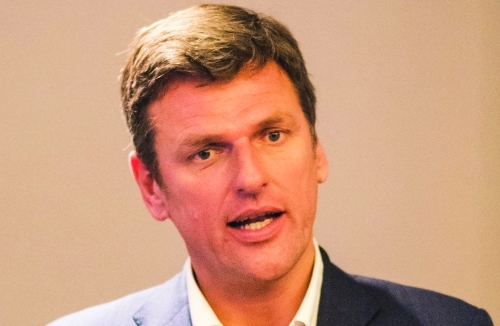 What does sustainable investment mean?
What does sustainable investment mean?One of the challenges for the non-expert is the sheer proliferation of terms, acronyms and languages. But whether it’s SRI (socially responsible investing), ethical, impact investing, CSR (corporate social responsibility), thematic, green bond or triple bottom line, they all mean slightly different things to the expert investor and they’re not always interchangeable.
But increasingly they’re using the term ESG to capture the umbrella of how we think about environmental, social and corporate governance risks in our portfolios and making sure that we are adjusting for those risks as we manage our clients’ money.
What are the drivers for sustainable investment?
Client demand is certainly a factor, particularly here in Europe and also in Asia. Pretty much every new client referral we see is asking about ESG risks in our portfolios. We’re also seeing a proliferation of market themes. We’re seeing a lot of new trends, as well as some old trends re-emerging.
Client demand is certainly a factor, particularly here in Europe and also in Asia. Pretty much every new client referral we see is asking about ESG risks in our portfolios. We’re also seeing a proliferation of market themes. We’re seeing a lot of new trends, as well as some old trends re-emerging.
Things like tobacco exclusion, which had largely gone away a few years ago are making something of a comeback at the moment, particularly among local authorities. As they are being asked to contribute more to local healthcare budgets, they are making the connection, thinking ‘oh why are we investing in stocks that are putting people in the hospital in the first place’.
So it is constantly evolving and it is a growing market. Some estimates reckon it is about US$23 trillion globally now.
There’s no doubt there is government regulatory pressure particularly after the financial crisis in 2007, encouraging all of us as an industry to be longer term stewards of our clients’ assets rather than just short-term traders.
We saw at the extreme end ESG failures; companies that are run recklessly for the short term can lead to blow-ups that are very material for share prices and for our clients. You only need to think about some banks in 2006, or oil rigs, or auto emission.
And lastly, there are those millennials – that new generation of investors who may be seeking for something slightly different than previously.
How are asset managers delivering ESG investing?
We’re moving from that negative exclusion model to the positive engagement model. We’re finding innovative ways of delivering both for our clients.
We’re moving from that negative exclusion model to the positive engagement model. We’re finding innovative ways of delivering both for our clients.
When I first started asking ESG questions to company CEOs in the late 1990s in a one-on-one environment, the room literally went quiet. ‘Who’s this guy? Why is he here?’
The fact today that every CEO we see is not only expecting these questions from major shareholders but is equipped to answer them. That’s how far we’ve come.
PRI (Principles for Responsible Investment) was a big game changer for us. This was a UN-sponsored initiative to encourage signatories to think about ESG risks in their portfolios. We were one of the first major Wall Street firms to sign way back in 2007. It was the first time that an initiative had said we think this applies to all asset classes, not just equities.
And the journey is ongoing. As we go forward you will see more thematic funds. You will see possibly ESG factors as part of smart beta solutions as well as more labeled sustainable funds and more innovative benchmarks tracking sustainability.





.jpg)
.jpg)


